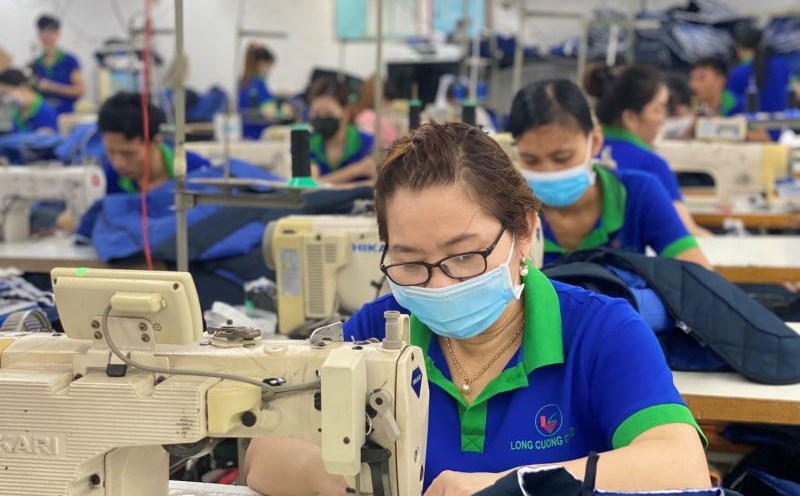First fired
After finishing grade 12, Mr. Nguyen Duc Hoang (born in 2001, from Thanh Mien district, Hai Duong province) went to Hanoi, following the introduction of a relative, to work at a handicraft company.
The company where Mr. Hoang works is located in Hoang Mai district (Hanoi), specializing in selling lacquer gifts, artistic ceramics, bags and products made from sedge...
At first, thanks to the active support from relatives, Mr. Hoang always achieved enough sales. Thanks to that, a hard salary combined with a soft salary from sales always helps him earn an income of 15-17 million VND/month.
Since the beginning of 2024, the company's general business situation has become more difficult, Mr. Hoang struggled even more when his relatives regained their acquaintances because his sales have also decreased. Struggling for several months without finding a new customer, Mr. Hoang only earns about 6.5 million VND/month.
"I don't have enough money to spend on living in the city, I have spent it accumulated over time," said Mr. Hoang.
In the fourth quarter of 2024, the company will conduct a personnel cut, Mr. Hoang is on the first cut list. "Among the reasons given by the company, the reason "no degrees, certificates" was given first," Mr. Hoang recalled.
Losing his job, unable to return to his hometown, Mr. Hoang asked to be a motorbike taxi driver. Aware that if there is no degree, job opportunities and income will be more and more difficult, Mr. Hoang applied to study refrigeration at a vocational college in Mai Dich ward, Cau Giay district. "I was about to go to the first semester. When I went to school, my decision was right. My class had dozens of students like me, studying and doing. Even, dozens of people lost their jobs, fired recently because of no qualifications, certificates were determined to go to school before finding new job opportunities," Hoang shared.
The more you have a degree, the higher your job opportunities are
At the new job fair organized by the Hanoi Employment Service Center on May 17, with the participation of 31 units and enterprises, the total demand for labor recruitment and recruitment is 1,983 targets.
Enterprises and units recruit many positions and occupations such as production workers, consultants, sales - disbursement... with attractive salaries. Of which, the demand for recruitment of workers with degrees (from intermediate to college, university) accounts for 53.82%.
According to the representative of the Hanoi Employment Service Center, at the session, unskilled workers had 768 recruitment targets but the salary was always below 10 million VND/month. There are 830 targets for income from 15 million VND/month or more, accounting for 49.91% of the total recruitment targets. Notably, this is the main income level for study abroad, labor export or management positions in companies and enterprises; some vocational recruitment positions such as engineer, university degree.
According to the General Statistics Office, in 2024, the percentage of trained labor in 2024 was estimated at 69%, equivalent to nearly 38 million people. Meanwhile, the Government's goal through the labor market development support program until 2030 is the rate of training with qualifications and certificates of 35% - 40%. This figure shows significant challenges in improving technical qualifications for workers, especially in developing training programs and policies in the coming time.
Talking to PV Lao Dong, Mr. Le Quang Trung - former Deputy Director in charge of the Department of Employment said that the issue of training and improving the qualifications for workers to participate and meet the requirements of the labor market is decisive. Objectives in Decision 176/QD-TTg dated 5.2.2021, the percentage of trained labor with qualifications and certificates reaches 35-40% by 2030. According to Mr. Le Quang Trung, this is a very important goal, to meet the human resource needs for the development in the new period, requiring sectors at all levels, businesses, organizations and especially employees to change awareness; Organize the assessment of training needs and have a specific plan program to improve the qualifications of workers and meet the true needs of the labor market.











